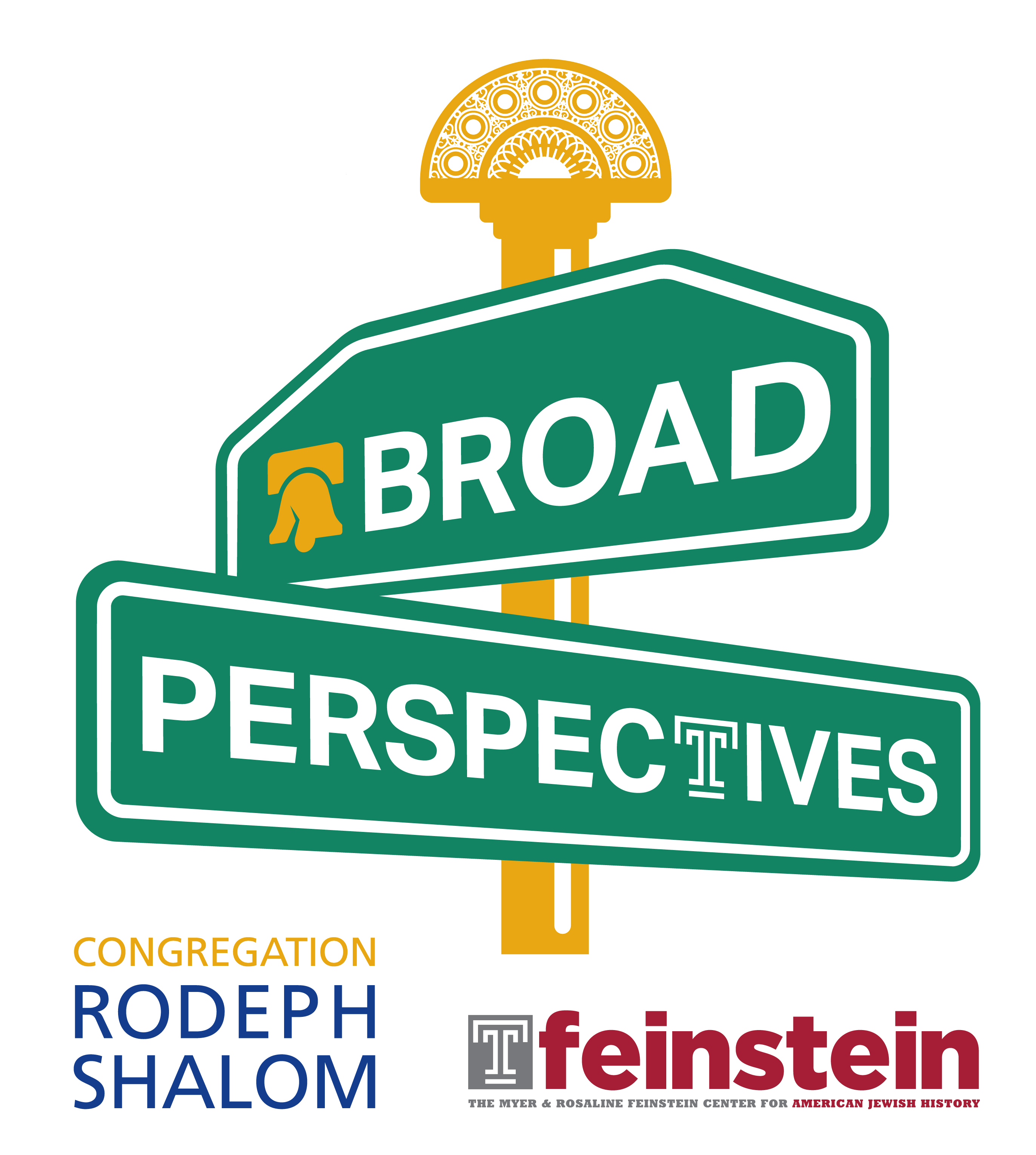
Can a university and a synagogue heal the division in our city, our country, and our world? Certainly not alone. But we’re hoping a new speaker series will be a move in the right direction.
The idea originated on Broad Street. Congregation Rodeph Shalom, a synagogue that traces its roots to the late-eighteenth century, and Temple University, a fixture of Philadelphia since its founding in 1884, are near neighbors on the North Broad corridor. From each of our office windows, we see what the great urbanist Jane Jacobs called the “sidewalk ballet” of the city. As our students and congregants move through the city’s public spaces, they regularly encounter the diversity, creativity, and inequities of city life.
Our partnership reflects the urban experiences to which both of our institutions are committed. Congregation Rodeph Shalom’s urban location is more than an address; it is intrinsic to its Jewish identity. Scholar Dr. Aryeh Cohen argues that Rabbinic Judaism is an urban phenomenon. The sages who wrote the Talmud lived in an urban environment and saw its concerns as their concerns. Later Jewish thinkers took the urban sensibility of Jewish commentary as an ethical mandate. The twentieth-century French Jewish philosopher Emmanuel Levinas developed the idea of “humane urbanism.” He explained that one should evaluate their actions based on the consequences for every city dweller, whether a friend or stranger, because the city is common ground, the space that connects one to another.
Similarly, Temple University takes inspiration and meaning from the city. Indeed, engaging with the city of Philadelphia is core to the university’s mission. Temple fosters connections with nearby neighborhoods through pipeline programs for high-school students, and its faculty and students fan out across the city, learning about history, art, science, public health, media, and more in their encounters with Philadelphia. The Feinstein Center for American Jewish History, a part of Temple since 1990, has embraced this urban commitment, supporting research and public programs that delve into the long and sometimes fraught history of American Jews and urbanism.
But we did not create this new speaker series simply to celebrate our institutions’ urban commitments. Rather, we see it as core to our responsibility to foster vital urban encounters. Until we can take Levinas’ mandate seriously and see even the stranger in the city as part of our community and until we can reckon with the complicated histories of American Jews’ urban experiences, we will only be living in part of the city, in the bubbles that protect us from the diversity we prize.
Broad Perspectives aims to hone just that: to broaden our view of our communities, our city, and our world, and to explore the lines that divide and connect us. Each event features the voices of intellectuals, writers, experts, and activists who are working to build a just and equal world that values Broad Perspectives.
We will begin on Saturday, September 9, on Selichot, the evening that launches the High Holy Day season, with an exploration of how diverse Jewish cultures and foods mark Jewish time, led by chefs Michael Solomonov and Adeena Sussman. The series will continue with a conversation about the battlegrounds and common grounds of public history that features the president of the Tenement Museum and a curator from the United States Holocaust Memorial Museum. In the new year conversations moderated by Temple University faculty will explore online white supremacy with a journalist who has covered the topic and will dive into campus wars about free speech and antisemitism with a professor of philosophy and education. Each program will offer opportunities for the audience to participate in discussions and continue learning.
A Jewish teaching from Pirkei Avot instructs, “Turn it and turn it again, for everything is in it.” We think of Philadelphia and, specifically, our homes on North Broad in the same way. The deeper we delve into the tensions, the beauty, the injustices, and the possibilities in our neighborhood, the more we learn about our wide world. We hope you’ll join us on Broad Street.
Professor Lila Corwin Berman, Murray Friedman Chair of American Jewish History and Director of the Feinstein Center for American Jewish History, Temple University
Rabbi Jill L. Maderer, Senior Rabbi Congregation Rodeph Shalom
For details about Broad Perspective programs and to register, click here.
